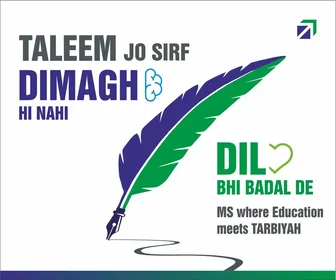SOURCE :- SIASAT NEWS
Multi-talented Kannada writer, lawyer, and social activist, 77-year-old Banu Mushtaq, has pulled off an incredible feat by lifting the prestigious International Booker Prize for her collection of twelve short stories in a book titled Heart Lamp. Credit should also go to Deepa Bhasthi who translated the stories from Kannada to English.
According to some literary experts, the International Booker Prize is fast becoming a significant rival to the Nobel Prize. It is an award that is hosted in the UK. The introduction of the International Booker Prize to complement the Man Booker Prize (which is another award) was initiated in June 2004.
For the author Banu Mushtaq, who does not hesitate to describe herself as an anti-establishment rebel, it has been a courageous journey from being a struggling activist and author hailing from Hassan in Karnataka, to the top of world literature. Along the way, she had to face many difficulties including social boycott and physical threats for voicing her opinions.
Her writings are in her native language of Kannada. She has published six short story collections, a novel, an essay collection, and a poetry collection. Her work has been widely translated into Urdu, Hindi, Tamil and Malayalam. She speaks Dakhni Urdu, Kannada, and English.
Different mindset
But she is more than a successful author. From a young age, she had a mindset that was different from most others. Contrary to general expectations, she attended university and had a marriage of her choice at age 26. She then worked as a reporter for the newspaper Lankesh Patrike which was founded by P. Lankesh, father of slain activist Gauri Lankesh. For some months Banu also worked for the All India Radio in Bengaluru.
Survived a murder attempt
In the 1980s, Mushtaq became involved in activist movements working to counter fundamentalism and social injustices in Karnataka. In this phase she encountered stiff opposition from many quarters. In the year 2000, a three-month social boycott was enforced against Mushtaq and her family in response to her advocacy of the right of Muslim women to enter mosques. She received many threats and once was attacked by a knife- wielding man whose attempt to stab her was foiled by her husband Mohiuddin.
The same year when Hindutva organisations were trying to stop Muslims from visiting the Baba Budan shrine in Karnataka, she spoke out vehemently against it. In her writings, she has always staunchly supported Dalits, women, and minorities. A few years ago, a national award- winning film titled Hasina was produced by the well-known filmmaker Girish Kasaravalli that was based on one of her stories about the struggles of a Muslim woman.
Change is inevitable
After she won the Booker award, she spoke to The Times of India and said: “The hardships that I faced have inspired much of my literary work. I never imagined that stories from my little corner of the world would go so far. It is a great moment for regional language authors from India and for the cause of diversity. As a critical insider, I have had to face ostracism, threats, and mental trauma. I believe that a writer’s job is to document injustices and fight against political manipulation. In today’s divided world with its hate-driven politics, I remain hopeful that better times are ahead. History has shown that change is inevitable. Finally, I am grateful to Deepa Bhasthi for giving my words a new lease of life by being translated into English.”
Background of the translator
Journalist Deepa Bhasthi began translating Banu’s work in 2022. Deepa selected Banu’s 12 stories from a collection of stories that Banu had written between 1990 and 2023. Eventually, Deepa became the first Indian translator (into English) to win the award along with Banu.
Deepa who hails from Madikeri in Karnataka developed a love for Russian literature when she was a schoolgirl. After graduation, she obtained a degree in journalism from Mangalore University and entered journalism. She eventually became a columnist and founding editor of The Forager magazine. She has also written books for children.
The award that these two women have bagged must inspire others to emulate them. If a collection of stories in Kannada can win such an important award, then cannot the same happen in the case of Telugu and Urdu stories? All it needs is for authors who write in the regional languages in Telangana and Andhra to raise their level of aspiration and dream big.
If Banu Mushtaq from neighbouring Karnataka can do it, why not writers from Telangana, Andhra, and Hyderabad do the same? If they take inspiration from Banu, perhaps one day we will see the award coming to someone from this region too.
SOURCE : SIASAT


